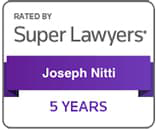
Divorce is never an easy process to undergo. Divorce forces individuals to face the painful reality of permanently separating from their respective partners with whom they endeavored to share their lives. At the same time, however, divorce also forces individuals to figure out what comes next for them and their children. Trying to take on both of these tasks contemporaneous with one another can make individuals who are getting divorced feel overwhelmed, stressed, and hopeless. These negative feelings may be further compounded if the individuals have to have the court decide all issues concerning their divorce. While it may not necessarily be a complete cure for the emotions you experience during the divorce process, participating in mediation with your soon-to-be ex-spouse may make the divorce process more bearable. Below, we explain why participating in mediation may be advantageous when undergoing a divorce.
What is Mediation?
Mediation is a form of alternative dispute resolution (“ADR”). ADR allows parties to come to resolutions concerning their legal issues without court intervention. During a mediation, the parties meet to discuss possible resolutions of their legal issues with one another. When mediation occurs, it is led by someone called a mediator. The mediator, usually a lawyer, acts as a neutral third party and does not offer the parties legal advice nor act as their lawyer. Rather, the mediator’s job is to help the parties come to an amicable resolution of their legal issues by diffusing the tension between the parties as they discuss said issues and keeping the parties on topic.
In New Jersey, mediation is used in divorce cases or two reasons:
- to settle property division disputes and financial issues
- to settle child custody disputes.
With respect to property division and financial disputes, New Jersey courts will often order the parties to undergo a mediation process, which is called the Matrimonial Early Settlement Panel (“MESP”), upon the filing of a divorce complaint. MESP requires the parties to submit lists of their assets, their tax information, and any outstanding debt that they incurred during the marriage to either two or three experienced divorce attorneys. These attorneys comprise the panel. Upon receiving all of the above-mentioned documentations, the panel will make a prediction as to how they think a court would divide the parties’ assets and liabilities if the issue went before a judge. The parties may then use the recommendation to negotiate a settlement of any property division or financial issues they have because of the divorce.
If the couple undergoing divorce has children, New Jersey courts mandate that parties engage in mediation to settle custody disputes. While this mandate is subject to a few exceptions, i.e., a court will not require parties to participate in mediation if there is a history of domestic violence between them, it provides the parties with the opportunity to come to an amicable agreement on how and when they will get to see their children.
Why Mediation?
Because the purpose of mediation is to allow the parties to come to amicable agreements concerning their legal disputes with one another, participating in mediation during the divorce process may be beneficial for multiple reasons. First, mediation provides the parties with a safe space to discuss their issues with one another. Because the parties are in a safe space and there is a mediator present to moderate the conversation, the tensions between the parties may be lessened. Because the tension between the parties is often diffused during mediation, the parties are more likely to settle all of their disputes in a timely fashion, i.e. they can draft a settlement agreement concerning the issues as opposed to waiting weeks or months for the court to schedule the matter for hearing and, thereafter, to fashion a ruling on the issues.
Second, mediation gives parties the power to decide for themselves how they will divide the assets and debts and how they will make custody arrangements. If parties do not come to an agreement on these issues, then control over their affairs will be taken away from them and the issues will be left to a judge, who is a stranger to the parties, to decide. Allowing a judge to determine these issues may be risky because the both parties may not get what they want.
Third, if the parties are far apart in terms of what they are seeking in the divorce, mediation provides parties with the opportunity to engage in open discussion with one another and allow them to understand why the other is seeking the specific assets or custody arrangement that they are. Consequently, even if mediation does not result in a complete resolution of all issues, it may serve to lessen the gap between the parties’ positions on said issues before it comes before a judge. This may provide the judge with enough information to make a decision that is not offensive to either party.
Fourth, mediation is usually confidential whereas court proceedings are public affairs. Accordingly, if the parties settle their issues in mediation, then the parties are less at-risk of having their dirty laundry aired in front of a public forum and stand a better chance to keeping the details of their settlement private.
Contact a Roseland Family Law Attorney for a Consultation About Divorce Mediation in New Jersey Today
If you are thinking about filing for divorce, or if you have already started the divorce process and are dealing with another matter such as child custody, child support, or division of assets, you need to speak with a qualified attorney. The New Jersey family law attorneys at Nitti & Nitti Attorneys at Law represent clients throughout the state, including Roseland, Livingston, Newark, and Morristown. We understand how challenging this time can be for you, which is why we will fight hard to protect your interests, and the interests of your loved ones, throughout the legal process.
The articles on this blog are for informative purposes only and are no substitute for legal advice or an attorney-client relationship. If you are seeking legal advice, please contact our law firm directly.
